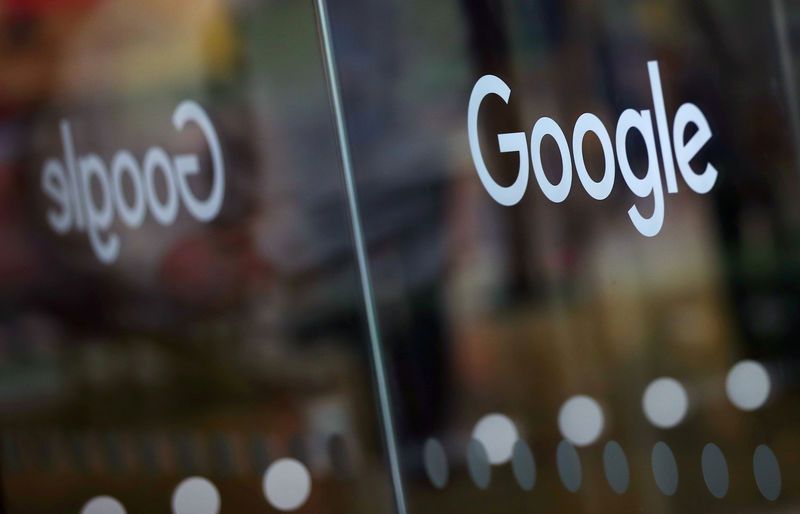

By Arjun Panchadar and Paresh Dave
(Reuters) – Alphabet Inc’s Google failed to reap the benefits of a strong economy that bolstered rivals in the first quarter, leaving the search giant’s revenue below Wall Street targets on Monday.
Shares of Alphabet dropped nearly 4 percent after hours after closing up 1.5 percent at a record-high of $1,296.20.
Major competitors for ad spending such as Facebook Inc, Snap Inc, Amazon.com Inc and Twitter Inc all reported last week quarterly revenue above or in line with analysts’ expectations.
Alphabet said its quarterly revenue rose 17 percent from a year ago, its slowest pace in three years, to $36.3 billion, compared with Wall Street’s average estimate of $37.3 billion, according to IBES data from Refinitiv.
Alphabet’s expenses have surged faster than revenue for much of the past two years, concerning some investors amid increased scrutiny on the company’s privacy practices and efforts to restrict advertising on potentially offensive content.
But positive macroeconomic signals have given them reason to believe that the company’s ads business is healthy. Shares had risen 11.9 percent between its last earnings announcement and Monday.
About 84.5 percent of revenue, compared with 85.5 percent a year ago, came from Google’s ad business, which sells links, banners and commercials across its own websites and apps and those of partners.
Google’s 3 billion users help make it the world’s largest seller of internet ads, capturing nearly a third of all revenue, according to research firm EMarketer. Facebook is at about 20 percent.
Alphabet reported $29.7 billion in quarterly costs, up 16.5 percent from last year.
Alphabet has said its spending increases are justified, with huge outlays going to offices, data centers and artificial intelligence capabilities in line with the expected demand for its services.
Still, the company has yet to tout significant revenue from its spending on ventures such as self-driving cars and its AI helper Google Assistant.
Newer units that are producing noticeable revenue have lagged in market share, including Google’s consolidated hardware unit and Google Cloud, which sells computing and data storage services to businesses.
And Google’s costs could jump further if governments globally follow through on growing threats to rein in the ability of apps to track users for advertising purposes. Other regulators have discussed forcing companies to step up monitoring of user content.
Shares of Alphabet have gained 23 percent this year, the least growth among the so-called FAANG group, with Facebook at 48 percent, Netflix at 39 percent, Apple at 30 percent and Amazon at 29 percent.
FINE ACCOUNTING
Alphabet’s expenses included a $1.7 billion fine from the European Commission for having placed anticompetitive advertising restrictions on websites using its searches.
Income also was boosted by a change in valuation of Alphabet’s stake in ride-sharing app Lyft Inc, which held an initial public offering a month ago. Alphabet could see similar gains later this year as other highly valued startups in which it has ownership, including transport app Uber Technologies Inc and workplace software firm Slack Technologies Inc, make their public debuts.
Including the European fine, net income was $6.7 billion, or $9.50 per share, compared with analysts’ average estimate of $7.3 billion, or $10.48 per share. Earnings excluding the fine were $8.3 billion, or $11.90 per share, beating analysts’ estimates $10.61 per share for adjusted earnings.
Operating margin excluding the fine was 23 percent, up from 22 percent in the year-ago period.
(Reporting by Arjun Panchadar in Bengaluru and Paresh Dave in San Francisco; Editing by Sriraj Kalluvila and Lisa Shumaker)








